
Data-Driven Control Methods for Energy and Manufacturing


Roberto holds an M.Sc. and a Ph.D. in Particle Physics from the University of Torino, Italy. He has worked for several years in fundamental research as a senior fellow and data scientist at the CERN Experimental Physics division and on a research project supported by the Belgian National Fund for Scientific Research (FNRS). In 2018 he moved to EPFL to work on data mining and Machine Learning techniques for the built environment and renewable energies. He has started and led multiple collaborations with academic and industry partners in the energy domain. Roberto joined the SDSC in September 2021 as a Principal Data Scientist with the mission of accompanying industries, NGOs and international organizations through their data science journey.
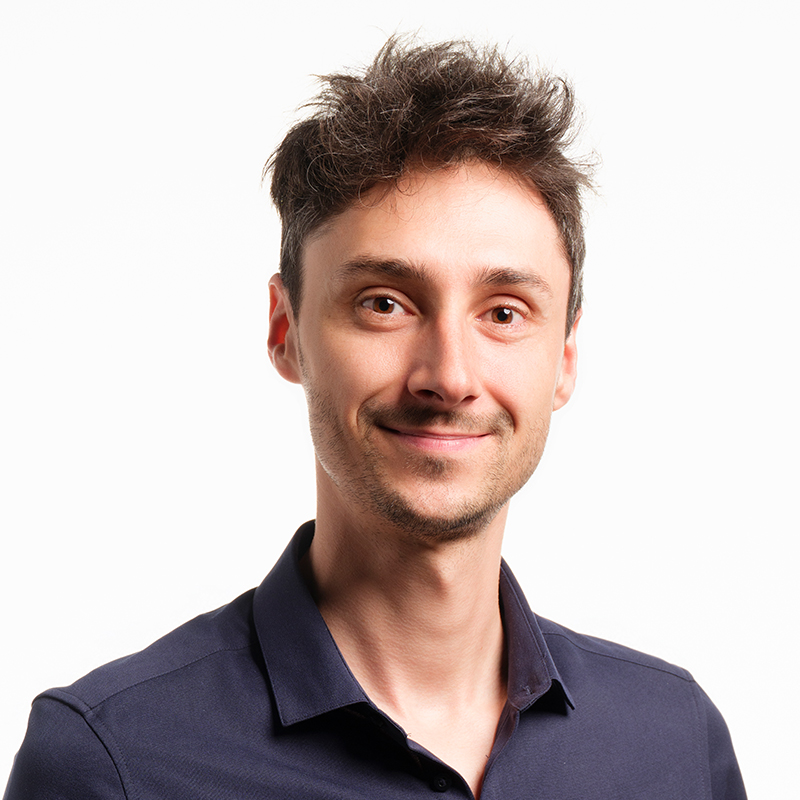

Carl holds a Ph.D in Mathematics from École des Ponts ParisTech and Université Gustave Eiffel in Paris. He has broad interests in statistics and stochastic control, and works on reinforcement learning, generative methods and time series forecasting, with applications in various domains such as energy, finance and physics. He worked with EDF R&D and Finance des Marchés de l’Energie (FiME) laboratory on applications of machine learning to risk management, including time series generation and deep hedging. He joined the SDSC in 2022 as a senior data scientist in the academic team at École Polytechnique Fédérale de Lausanne (EPFL).


Victor joined as a Data Scientist in the SDSC Innovation team in 2023. He holds a Bachelor's degree in Mechanical Engineering (B.Eng.) from the University of Pretoria in South Africa, as well as Master's degrees in Robotics and Mechatronics (M.Sc.) and Artificial Intelligence (M.Sc.) from KU Leuven in Belgium.Prior to joining SDSC, he worked for several years as a consultant at Capgemini Engineering and as an R&D Engineer at Toyota Motor Europe. Within the Advanced Powertrain and Target Setting team at Toyota, Victor played a crucial role in the pre-development of innovative electric and fuel-cell vehicles. His responsibilities included leading the development and deployment of Natural Language Processing (NLP) tools and pipelines, data science and machine learning, building data analytics dashboards, statistical forecasting, powertrain design, optimal control system design, and strategic technical target setting. He is passionate about leveraging his combined Engineering and Data Science knowledge to solve complex problems in the industry.
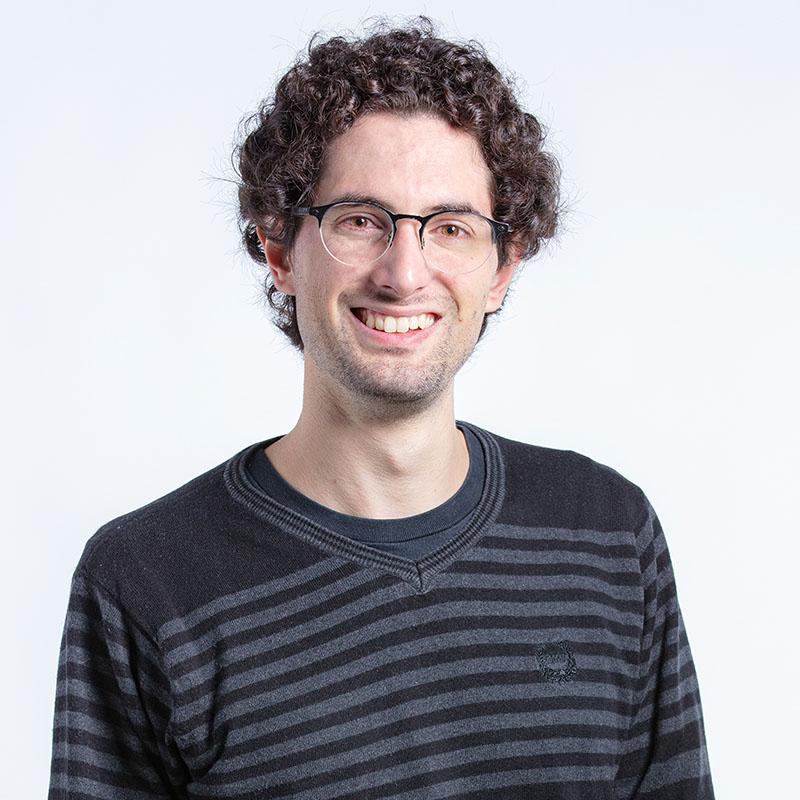

After earning a MSc in Theoretical Physics at University of Padua, Giulio graduated in Quantitative Finance from Bocconi University. Before joining the SDSC industry cell in June 2021, he spent a few years working in the financial sector, where he mainly dealt with the application of machine learning to financial risk management. When not coding, Giulio spends his free time playing bass guitar, hiking and cooking.

Presentation
Overview
Controlling processes is a critical aspect of industrial systems, playing a pivotal role in maintaining process efficiency and safety and ensuring the quality of industrial products. Control methods are also used to optimize energy usage, for example, by controlling the operation of a building’s heating system and electric vehicle charging.Existing strategies range from simple feedback control loops to complex algorithms incorporating predictive models and artificial intelligence. During this one-day workshop, we will review the current state-of-the-art in data-driven control methods and discuss the existing challenges and opportunities related to their adoption in a production environment.
Details
Target Audience
Experienced professionals and data scientists from Energy and Manufacturing who wish to acquire hands-on knowledge of data-driven control methods and their usage are invited to attend. The workshop will be in English.
Objectives
By the end of the day, participants will:
- Learn the main principles behind the existing data-driven control methods mostly used in an industrial context.
- See how these methods work on real data collected by companies in manufacturing and energy domains.
- Gain an overview of the challenges related to deploying these methods in production.
Workshop organizers
Eleni Pratsini and Georgios Mavromatidis (Empa), Matthias Graeber (Bühler), Roberto Castello (SDSC).
Contacts: roberto.castello@epfl.ch
Instructors and speakers
Prof. Maryam Kamgarpour, Assistant Professor, System Control and Multiagent Optimization Research Laboratory (EPFL)
Prof. Zoltan Nagy, Assistant Professor at the University of Texas at Austin and Director of the Intelligent Environments Laboratory
Dr. Matthias Graeber, Head of Data Science at Bühler AG
Dr. Felix Bunning, Co-Founder and CEO at viboo
Dr. Georgios Mavromatidis, Head of Urban Energy Systems Laboratory at Empa
Dr. Carl Remlinger, Senior Data Scientist at SDSC, EPFL
Mr. Victor Van Wymeersch, Senior Data Scientist at Digitec Galaxus AG (formerly at SDSC, ETHZ)
Mr. Giulio Romanelli, Data Scientist at SDSC, EPFL
Dr. Roberto Castello, Principal Data Scientist at SDSC, EPFL
Registration Details
Registration fee: 150 CHF per person.
(Limited free seats for Empa, Bühler and SDSC partners. Coffee breaks and lunch are included.)
Maximum number of participants: 50
Please pre-register for the workshop by writing an email to Registrations@datascience.ch including your full name, company name, email address.
Note: Due to the limited number of seats, the participation will be confirmed by email a few weeks after the registration.
Event Location
The workshop takes place at the
Empa Academy
Überlandstrasse 129
CH-8600 Dübendorf
Directions
Program
09:00
Welcome Coffee
9:30
Welcome and introduction: Empa, Bühler, SDSC
9:40
Intro to Model Predictive Controls: Victor Van Wymeersch (Digitec Galaxus AG)
10:10
Intro to Reinforcement Learning: Giulio Romanelli (SDSC)
10:40
Coffee Break
11:00
AI process control at Bühler. From decision support to autonomous operation: Matthias Gräber (Bühler) and Julien Eberle (Arcanite)
11:30
Control systems in the AI age: Prof. Maryam Kamgarpour (EPFL)
12:00
Lunch break
13:30
Keynote (Zoom): “Reinforcement learning for building energy management”:
Prof. Zoltan Nagy (University of Texas)
14:15
Scalability of Building Energy Management Solutions: Carl Remlinger (SDSC)
14:30
Bringing predictive algorithms to smart thermostats: Felix Bünning (viboo)
14:45
Breakout rooms in preparation of the round table: All participants in groups
15:15
Coffee Break
15:45
Round table: “Real-world implementation of data-driven control methods: obstacles and opportunities.”
Matthias Gräber, Felix Bünning, Georgios Mavromatidis, Zoltan Nagy, Roberto Castello (moderator)
16:45
Closing remarks: Empa, Bühler, SDSC
17:00-18:30
Aperitif
Programme
Other events

ENID | Enabling Innovation with Data Science at UNIL-EPFL


Dr. Olivier Verscheure is the director and founder of the Swiss Data Science Center (SDSC). Olivier also co-leads a joint training program between EPFL and HEC Lausanne, specifically designed for senior executives. Since 2018, Olivier has been a member of the Board of Directors of Lonza, a global leader in the life sciences sector. This company provides products and services to the pharmaceutical, biotechnology, and specialized healthcare industries.Olivier began his career at IBM Research after earning his Ph.D. in computer science from EPFL. He held several research and leadership positions at the IBM T. J. Watson Research Center in New York and co-created and co-directed the IBM Research center in Dublin, Ireland, before joining the EPFL in 2016.


Matthias Galipaud obtained his PhD in evolutionary biology in 2012 from the University of Burgundy in Dijon (France), and held postdoctoral positions as a mathematical biologist at the university of Bielefeld (Germany) and the university of Zurich, where he researched the evolutionary theories of aging and mate choice. In 2020, he became a data scientist, developing machine learning solutions for startups in Switzerland and Australia before joining the SDSC Innovation Team in November 2022.


Olivier joined the SDSC as a data scientist focused on industry collaborations in February 2023. He obtained a MSc in Physics (2017) from EPFL with a minor in Mathematics, and a PhD in Astrophysics (2021) from Aix-Marseille University. Before joining the SDSC, he worked in a small start-up, as a data scientist, on a variety of topics, including data wrangling, natural language processing and time series forecasting.
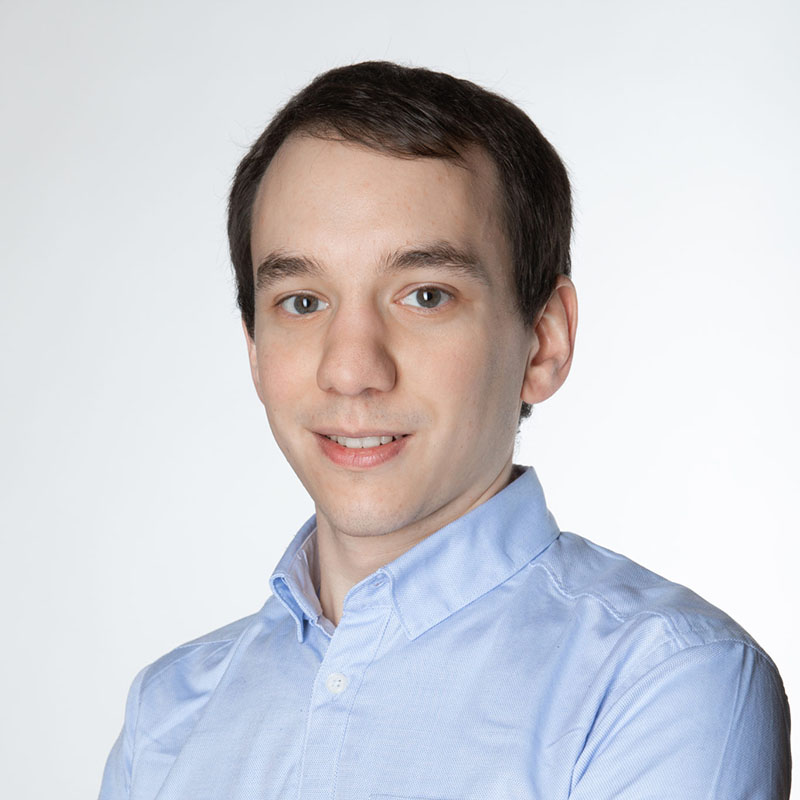

Clément became part of the SDSC team in January 2019, assuming the role of a Data Scientist with an emphasis on industry-oriented projects. He holds a Bachelor of Science degree in Physics, acquired in 2016 from the École Polytechnique Fédérale de Lausanne (EPFL) in Switzerland. Following this, he earned a Master of Science in Computational Science and Engineering in 2018, also from EPFL. Throughout his academic journey, Clément concentrated on leveraging Data Science and Machine Learning techniques to enhance efficiency in industrial processes. Subsequently, he developed a specialized interest in Generative AI, with a particular focus on Natural Language Processing (NLP), especially in the application of Large Language Models for innovation.
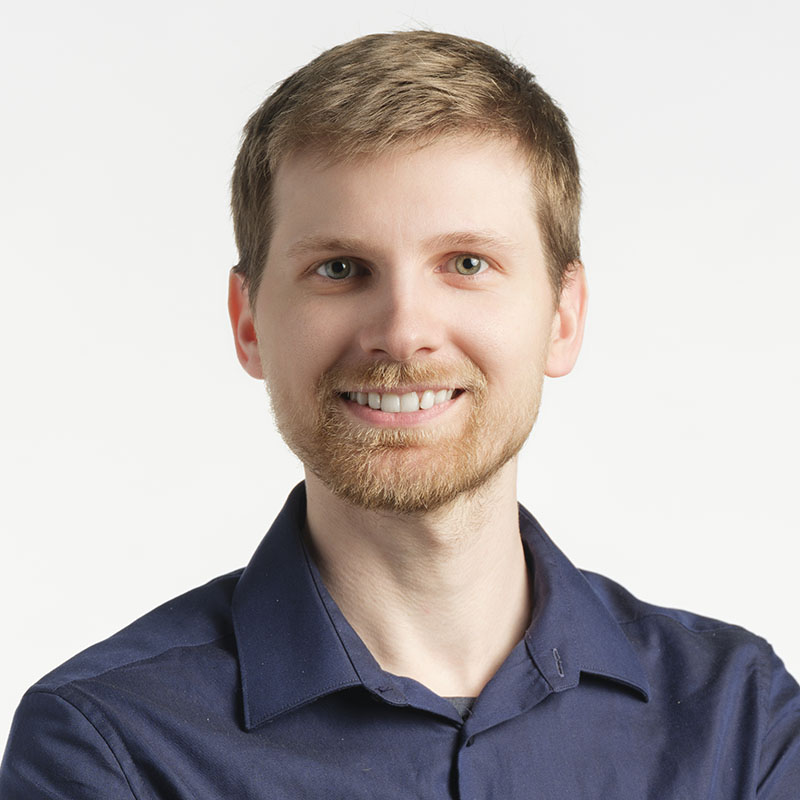

Thibaut holds a B.Sc in Computer Science from HEIG-VD. Before joining the SDSC, he worked in startups where he developped a diverse skill set combining cloud infrastructure, database and application development. Thibaut is very enthusiatic about new technologies and best coding practices and he is looking forward to supporting the team and its projects.

SDSC-Connect 2023


Dr. Olivier Verscheure is the director and founder of the Swiss Data Science Center (SDSC). Olivier also co-leads a joint training program between EPFL and HEC Lausanne, specifically designed for senior executives. Since 2018, Olivier has been a member of the Board of Directors of Lonza, a global leader in the life sciences sector. This company provides products and services to the pharmaceutical, biotechnology, and specialized healthcare industries.Olivier began his career at IBM Research after earning his Ph.D. in computer science from EPFL. He held several research and leadership positions at the IBM T. J. Watson Research Center in New York and co-created and co-directed the IBM Research center in Dublin, Ireland, before joining the EPFL in 2016.


Silvia holds an MSc in Computer Science from EPFL and a PhD in Computer Science from the University of York, UK. She has been a senior research fellow at the University of Trento and later at Politecnico di Milano, Italy. Here, she had the chance to work on Marie Curie and ERC projects relating to natural language processing. From 2012 to 2019, she was a Senior Manager and NLP expert at ELCA Informatique Switzerland, whose AI department she helped create and expand. Silvia joined the Swiss Data Science Center in 2019 and is currently its Chief Transformation Officer, in charge of the team leading organizations to digital transformation.


Roberto holds an M.Sc. and a Ph.D. in Particle Physics from the University of Torino, Italy. He has worked for several years in fundamental research as a senior fellow and data scientist at the CERN Experimental Physics division and on a research project supported by the Belgian National Fund for Scientific Research (FNRS). In 2018 he moved to EPFL to work on data mining and Machine Learning techniques for the built environment and renewable energies. He has started and led multiple collaborations with academic and industry partners in the energy domain. Roberto joined the SDSC in September 2021 as a Principal Data Scientist with the mission of accompanying industries, NGOs and international organizations through their data science journey.

SDSC Hackathon


Valerio started his career working for 7 years as a particle-physics researcher at CERN. There, he used state-of-the-art techniques to extract information from data, especially to search for traces of dark matter in particle collisions. Since 2016, he has worked in consulting, applying data science in several industries. First, he joined the Quant team of Ernst & Young in Geneva. Later, he created his own company, SamurAI sàrl, providing consulting services for his clients. He also has a passion for teaching very complex subjects in simple terms. That is why he particularly enjoys offering training programs to private companies and universities. Valerio joined the SDSC in Mai 2022 as a Principal Data Scientist with the mission of accompanying industrial partners and other institutions through their data science journey.


Sean obtained his PhD in Telecommunications Engineering from Dublin City University in 2001. Since then he has worked in large industry and startup contexts but has spent most of his time working in academic research labs with a strong applied focus spanning both Ireland and Switzerland. Sean has experience with all aspects of the research project lifecycle, ranging from project inception to proposal stage to project execution and reporting. Having a keen interest in technology trends and evolution, he strives to maintain a hands on approach with practical experience with key technologies in the rapidly changing cloud and analytics technology landscape. Sean works on the Renku Infrastrucuture team, leveraging his experience with modern cloud technologies, helping to make Renku easy to deploy and manage.
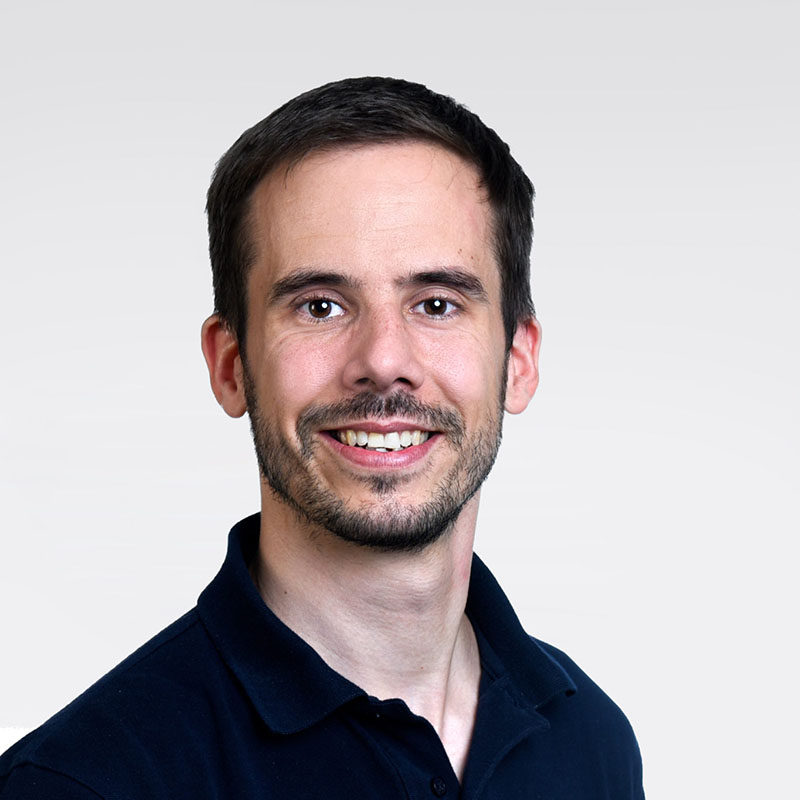

Luis is originally from Spain, where he completed his bachelor's studies in Electrical engineering, and the Ms.C. on signal theory and communications, both at the University of Seville. During his Ph.D. he started focusing on machine learning methods, more specifically message passing techniques for channel coding, and Bayesian methods for channel equalization. He carried it out between the University of Seville and the University Carlos III in Madrid, also spending some time at the EPFL, Switzerland, and Bell Labs, USA, where he worked on advanced techniques for optical channel coding. When he completed his Ph.D. in 2013, he moved to the Luxembourg Center on Systems Biomedicine, where he switched his interest to neuroscience, neuroimaging, life sciences, etc., and the application of machine learning techniques to these fields. During his 4 and a half years there as a Postdoc, he worked on many different problems as a data scientist, encompassing topics such as microscopy image analysis, neuroimaging, single-cell gene expression analysis, etc. He joined the SDSC in April 2018. As Lead Data Scientist, Luis coordinates projects in various domains. Several projects focus on the application of natural language processing and knowledge graphs to the study of different phenomena in social and political sciences. In the domains of architecture and engineering, Luis is responsible for projects centered on the application of novel generative methods to parametric modeling. Finally, Luis also coordinates different projects in robotics, ranging from collaborative robotic construction to deformable object manipulation.


Carlos Vivar Ríos joined the SDSC in 2023, where he is part of the Open Research Data and Engagement Unit (ORDES). As a multidisciplinary data engineer, he brings a diverse background in biology, cognitive sciences, and bioinformatics from the University of Malaga. His multifaceted professional career spans several disciplines, including genomics at RIKEN in Yokohama, multidimensional image analysis in microscopy at the University of Lausanne (UNIL), and cellular biology modeling at INRIA in Lyon. Carlos has been involved in a variety of projects, such as analyzing astrocyte calcium dynamics, de novo sequencing Solea senegalensis, drug repurposing for Alzheimer's based on GWAS studies, conducting geospatial analysis for linguistic corpora, and assessing drought through remote sensing. He is dedicated to advancing reproducible research methods and actively supports the open science movement.

ETH Industry Day 2023


Silvia holds an MSc in Computer Science from EPFL and a PhD in Computer Science from the University of York, UK. She has been a senior research fellow at the University of Trento and later at Politecnico di Milano, Italy. Here, she had the chance to work on Marie Curie and ERC projects relating to natural language processing. From 2012 to 2019, she was a Senior Manager and NLP expert at ELCA Informatique Switzerland, whose AI department she helped create and expand. Silvia joined the Swiss Data Science Center in 2019 and is currently its Chief Transformation Officer, in charge of the team leading organizations to digital transformation.
Contact us
Let’s talk Data Science
Do you need our services or expertise?
Contact us for your next Data Science project!
